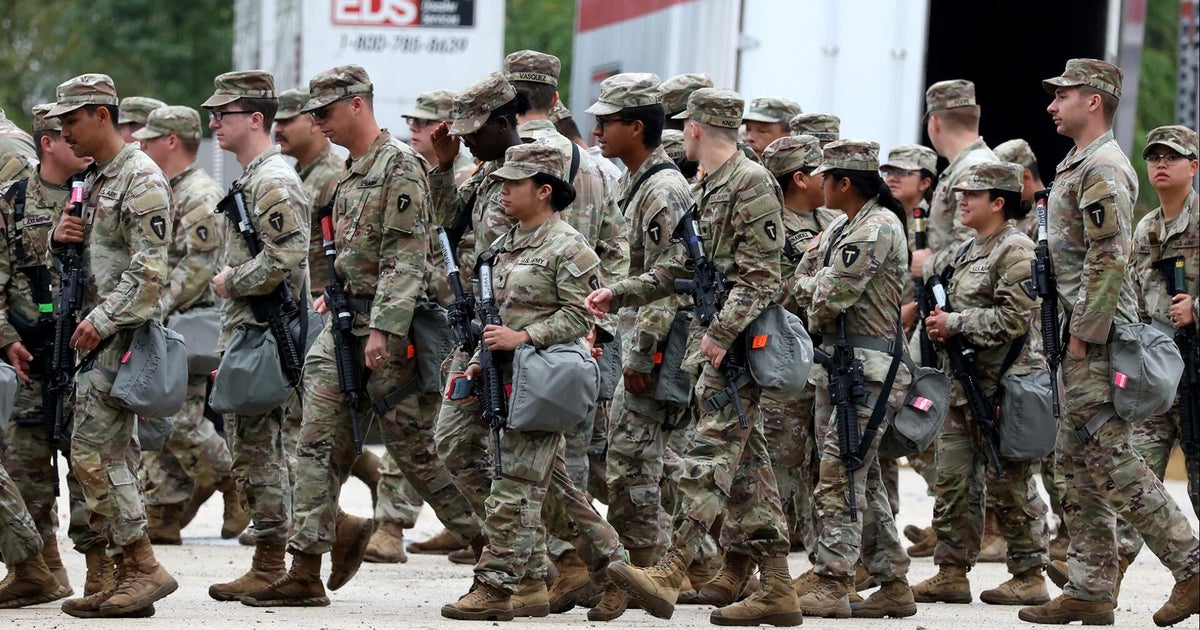
A judge is set to rule on a lawsuit filed by the state of Illinois and the city of Chicago seeking to prevent the National Guard from being deployed by the federal government over their objections.
A hearing in the U.S. District Court for the Northern District of Illinois began at 11 a.m. CT. Judge April M. Perry has set strict limits on the structure of the proceedings: each side will get 10 minutes for their opening statements, then she will get to ask questions, and then each side will be given 15 minutes for closing arguments before she makes her ruling.
CBS News Chicago Legal Analyst Irv Miller said there are three likely possible outcomes for the hearing. First, the judge could tell the government they can’t deploy the National Guard and have to leave. Second, the judge could rule the president was acting within his power and the guard can stay and do what they wish. Third, she could rule the guard can stay temporarily, but place major restrictions on their actions and autonomy.
READ MORE: U.S. District Court chief judge says National Guard not needed at Dirksen Federal Building
Illinois Attorney General Kwame Raoul argues in the suit, filed Monday, that “Defendants’ deployment of federalized troops to Illinois is patently unlawful.” He continues, “Plaintiffs ask this court to halt the illegal, dangerous, and unconstitutional federalization of members of the National Guard of the United States, including both the Illinois and Texas National Guard.”
The judge initially declined to grant an emergency temporary restraining order in the hours after the lawsuit was filed, instead giving the federal government until Wednesday at 11:59 p.m. CT to file their response.
They did so with moments to spare, in a 59-page filing that argues President Trump has the legal authority to deploy the troops and that state objections should not block the operation.
Attorneys for the federal government also argued the courts should be “highly deferential” when reviewing a president’s judgment, saying it’s within the scope of the authority the executive branch is given by the Constitution and statutes.
Mr. Trump has claimed that Chicago is “out of control” as justification for sending in the National Guard, and his administration and the Department of Homeland Security have claimed that federal agents and U.S. Immigration and Customs Enforcement facilities need protection from protesters.
Raoul said in a Monday news conference following the filing of the lawsuit that the only situation in the city or state that is “out of control” are the ICE agents themselves, whose overreach he said creates pretext for military deployment, and cited Mr. Trump’s own statements that he wants to use American cities as military training grounds and said Chicago “is about to find out why it’s called the Department of War.”
Speaking at a separate event before the hearing got underway Thursday, Chicago Mayor Brandon Johnson lamented the need for a court case at all.
“It’s a sad state of America when reporters have to go to court to not get shot at by the federal government,” Johnson said. “That we have to go to court so that teachers can run their classroom and that students can get inside safely and that we can protect them from chemical agents. That we have to go to court to protect the people of our city.”
